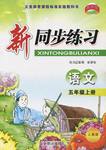题目内容
B. last
C. family
D. given

 教学练新同步练习系列答案
教学练新同步练习系列答案A little knowledge can make a difference at a time of life or death. Do you know what to do if you find yourself in an earthquake?
lf you are inside:
Quickly move under a strong desk, a strong table or along a wall. You can also go into a small room like the bathroom. This will protect you from falling things. Do not get into a lift.
Don't stand near windows, large mirrors, heavy furniture of fireplaces.
If you're outside:
Move away from buildings and streetlights. These could fall on you. Squat(蹲下) and protect your head until the shaking stops.
After the earthquake:
Check, take care of injuries and help make sure people around you are all right. Watch out for aftershocks.
Protect yourself by wearing long pants, a long-sleeved(长袖的)shirt and strong shoes. Listen to tile radio for the latest information.
1.If you are in a tall building when an earthquake happens, you'd better .
|
A.run into a lift |
B.not stay in the bathroom |
|
C.stand near large mirrors |
D.not stand near windows |
2.lf you outside during an earthquake
|
A.you must move into a building |
|
B.you cannot squat |
|
C.you have to stop the shaking |
|
D.you must move away from streetlights |
3.After the earthcluake, you should
|
A.look after injuries |
|
B.not help the others around you |
|
C.protect yourself without wearing shoes |
|
D.not listen to the radio for the latest information |
4.The underlined word "aftershocks" in the passage means in Chinese.
|
A.震感 |
B.震源 |
C.余震 |
D.防震 |
用方框中所给单词的适当形式填空,使短文完整正确(每个单词限用一次)
|
come China learn do go read like talk say be |
Mr. Smith__56___ from the England. He is an English teaher in NO.8 Middle School. He doesn’t know much__57____. Does he like__58____ it? Sure, he_59_____. He___60_____ to Chinese classes every week. Look! He___61_______Chinese now. He___62___ working in China very much. He can__63____ about something in Chinese now.He___64___ the Chinese people___65___ very friendly.
A man was walking along the street when he saw a woman carrying a large box. It was half in and half out of her car. So the man went up and said, “The box looks very heavy. Let me give you a hand.”
“That’s very kind of you,” the woman said, “I’m having a lot of trouble with it. Maybe it sticks (卡住) in the car door.”
“Together we’ll soon move it,” the man said. “I’ll get in and take the other end.” And he got in the car.
“Right,” the man said. “I’m ready,” and he began to push the box hard.
For several minutes, the man and the woman tried to move the box. Soon they felt very tired.
They rested for a moment. Then the woman said, “Let’s try again. One, two, three!” They went on moving the box.
At last, when they were exhausted, the man said, “I’m sorry, but I don’t think there’s any way to get it out of your car.”
“Get it out?” the woman cried. “I’m trying to get it in! You know?”
1.Where did this story happen?
|
A.At a bank. |
B.In a shop. |
|
C.In the street. |
D.In the woman’s car. |
2.Who got in the car to move the box?
|
A.The woman. |
B.The man. |
|
C.Both of them. |
D.Neither of them. |
3.The underlined word “exhausted” means “________” in Chinese.
|
A.精疲力竭的 |
B.激动的 |
|
C.充满希望的 |
D.沮丧的 |
4.Which of the following is TRUE about the story?
|
A.The man stuck in the car door. |
|
B.The woman asked the man for help. |
|
C.The man refused to help the woman. |
|
D.The woman tried to get the box into the car. |
5.What do you think of the man?
|
A.He is a helpful man. |
B.He looks very strong. |
|
C.He is funny and stupid. |
D.He likes to play jokes |


